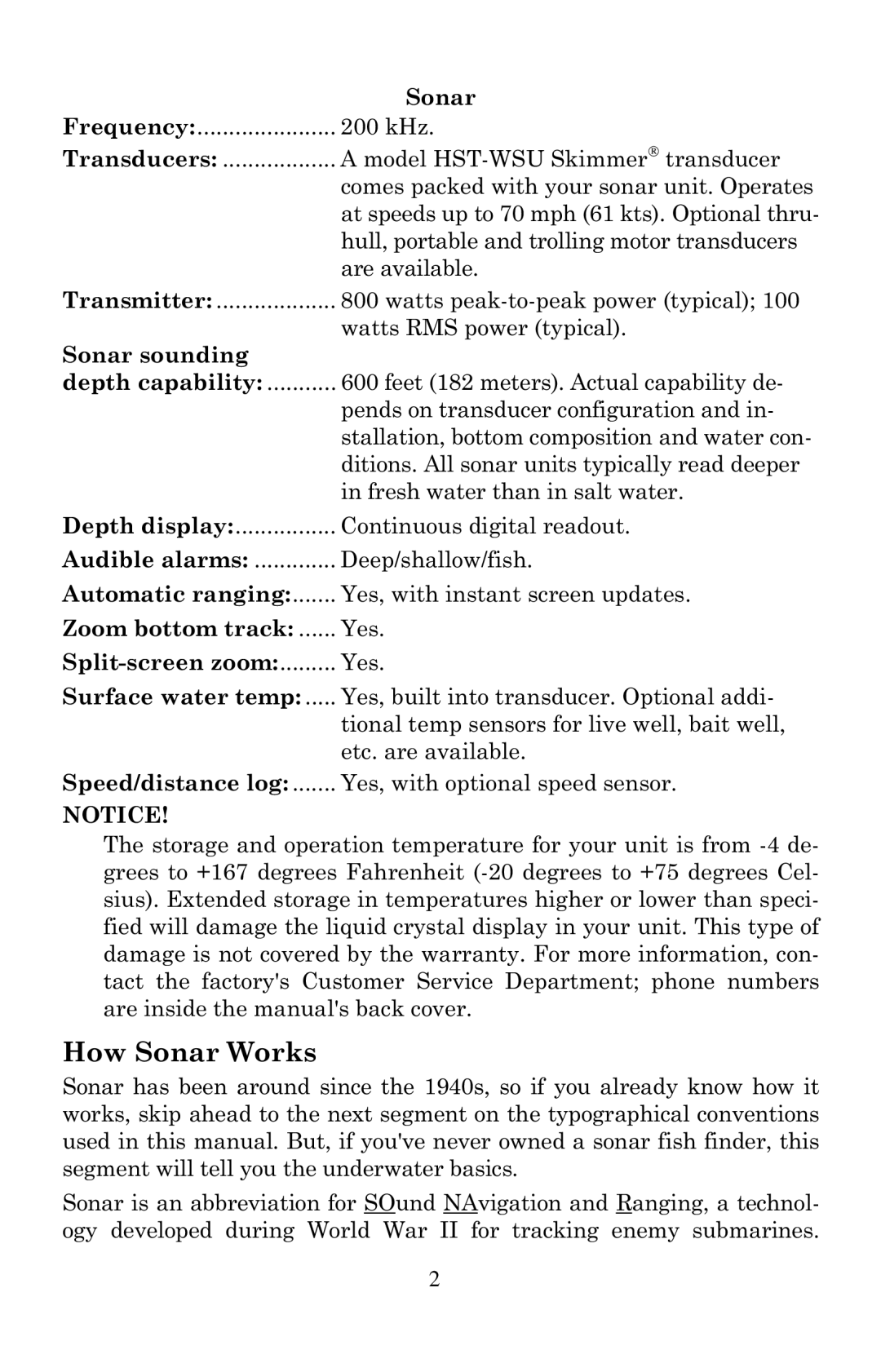| Sonar |
Frequency: | 200 kHz. |
Transducers: | A model |
| comes packed with your sonar unit. Operates |
| at speeds up to 70 mph (61 kts). Optional thru- |
| hull, portable and trolling motor transducers |
| are available. |
Transmitter: | 800 watts |
| watts RMS power (typical). |
Sonar sounding |
|
depth capability: | 600 feet (182 meters). Actual capability de- |
| pends on transducer configuration and in- |
| stallation, bottom composition and water con- |
| ditions. All sonar units typically read deeper |
| in fresh water than in salt water. |
Depth display: | Continuous digital readout. |
Audible alarms: | Deep/shallow/fish. |
Automatic ranging: | Yes, with instant screen updates. |
Zoom bottom track: | Yes. |
Yes. | |
Surface water temp: | Yes, built into transducer. Optional addi- |
| tional temp sensors for live well, bait well, |
| etc. are available. |
Speed/distance log: | Yes, with optional speed sensor. |
NOTICE!
The storage and operation temperature for your unit is from
How Sonar Works
Sonar has been around since the 1940s, so if you already know how it works, skip ahead to the next segment on the typographical conventions used in this manual. But, if you've never owned a sonar fish finder, this segment will tell you the underwater basics.
Sonar is an abbreviation for SOund NAvigation and Ranging, a technol- ogy developed during World War II for tracking enemy submarines.
2
